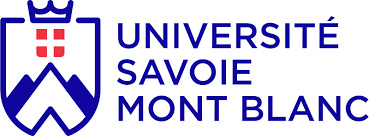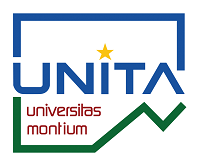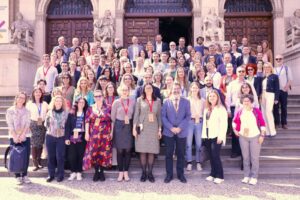
University of Savoie Mont Blanc
The Savoie Mont Blanc University (USMB) has had the chance to be closely associated to a unique territory which has accompanied it throughout its history. The two departments of Savoie and Haute Savoie, now grouped together within the framework of the Council Savoie Mont Blanc (CSMB), have traditionally provided support to the University. The mountain territory where the university is located has more than one distinctive feature: a space of flow, a cross-border region bordering both Switzerland and Italy, with good demographic dynamics and an economic growth among the highest of France.
In this favorable context, the University of Savoie Mont Blanc aims to become a leading European university. To this end, USMB devotes its energy to the service of high-level research, internationally acknowledged by the impact of the internal publications, and to a higher education meeting the expectations of first and foremost its students and its socio-professional partners. The latter support USMB through a Business Club and a Partnership Foundation which bring together the main business actors in the region. USMB has also strengthened its training offer in connection with its research specialties, seeking at the continuous improvement of teaching and learning practices. Concerned to integrate its graduates, USMB achieves under and postgraduate success rates higher than the national average associated with high professional integration.
Aware that tradition and openness are inseparable, USMB’s international strategy is structured around the cross-border cooperation, the values of francophonie and the construction of networks such as the one between French-speaking higher education institutions (Relief). USMB hosts a Unesco chair in water resources, cross-border chairs with Switzerland (focusing on energy-building and mobility), international summer schools and has hol the first national place, since 2008, for Erasmus + mobilities.
Since 2016, USMB has developed special relationships with the University of Pau and the Pays d’Adour (UPPA) given their numerous similarities. It is, therefore, but natural that the two partners have decided to participate together in the construction of a European University.

University of Turin
The University of Turin (UniTo) is one of the oldest and most prestigious universities in Italy. With around 78,500 students, 3,850 members of the academic staff and 120 buildings, it can be considered as a “city within the city”. UniTo has 27 departments attached to six schools: natural sciences, medicine, agriculture and veterinary medicine, human sciences, management, economics and legal, political and socio-economic sciences.
It provides training in all disciplines, except engineering and architecture, and offers more than 150 level courses for the undergraduate and postgraduate students. At the international level, the University of Turin is involved in various projects as well as in joint programmes, offering double degrees and programmes of international doctorates.
For this purpose, UniTo has concluded around 650 cooperation agreements with institutions established around the whole world. Visiting professors, researchers and students from European and non-European countries, in addition to the many programmes of mobility offered to students, form the framework of the University’s international vocation.

University of Pau and Pays de l’Adour
Multidisciplinary and multisite, the University of Pau and Pays de l’Adour (UPPA) is located on five campuses: Pau, Bayonne, Anglet, Mont-de-Marsan, Tarbes and the Saint-Pée-sur-Nivelle research center. The University trains more than 13,500 students for diplomas from Bac + 1 to Bac + 8, in law, economics, management, literature, languages, human sciences, sport, science and technology.
UPPA is recognized as a university of excellence with the project E2S UPPA, Solutions pour l’Énergie et l’Environnement, supported by the UPPA, INRAe, Inria and CNRS consortium (I-SITE Label, Science Innovation Initiatives, Territories, Economy) as well as with the Space project Spécialisation Progressive et Accompagnée des Cursus Étudiants (Label NCU, New Courses at University).
With 20 research units, 34 high-level chairs of expertise and eight joint laboratories in association with major research organizations (CNRS, INRAe, Inria) as well as with institutional and industrial partners, UPPA is a major player in scientific and economic development in the south of Aquitaine. Thanks to its international cooperation, the UPPA shines also at European level.
Its membership to the Unita Universitas Montium consortium adds to the European Doctoral Programme in Energy and Environment (Edene) allowing the funding of 30 international doctoral students in the field of energy and environment.

University of Zaragoza
The University of Zaragoza (UNIZAR) is located in the heart of Aragon. Founded in 1542, but with origin that date back to the Middle Ages and with roots in Antiquity, UNIZAR is one of the oldest in the world. The University of Zaragoza provides training for more than 30,000 students in its 22 faculties, and ranks among the best public universities in Europe. The only public university in the region, it is funded both by the Diputación General de Aragón (the regional government of Aragon) and the Spanish government. UNIZAR’s activity is spread over the three provinces of Aragon, with educational campuses and research centers based in Huesca, Teruel and Zaragoza. Among those, Zaragoza is widely known for its history going back to Roman times and the rich cultural heritage that surrounds it.
The University of Zaragoza assumes a leading and anticipatory role, offering, to society in general and to companies and institutions in particular, the opportunity to develop and put into practice the most advanced ideas or techniques in science, technology and humanities. UNIZAR also aims to achieve a highly qualitative and comprehensive training through teaching and research, based on the active participation of the students in the training process. The University of Zaragoza actively focuses on the development of its students’ attitudes, competences, capacities and abilities. For that purpose, UNIZAR advocates for a teaching staff that is equally innovative and committed to quality.
The University of Zaragoza is committed to an organization characterized by decentralization, both geographical and in terms of its management. Confirming its commitment to comprehensivness and its international vocation, UNIZAR opens the Unita Universitas Montium consortium to the Hispanic world, in particular to Latin America.

West University of Timișoara
Located in Timisoara, the European Capital of Culture in 2023, West University of Timișoara (WUT) is the largest higher education and research center in Western Romania. In its framework function 11 faculties and a Teacher Training Department, 85 study programmes at Bachelor Level, 120 study programmes at Master level, and 19 Doctoral Schools. Out of these, over 20 Bachelor, Master and PhD study programmes are offered completely in English, French or German.
Being a comprehensive higher education institution, with around 6% international students, WUT is constantly striving to create a substantially authentic, interdisciplinary and international environment for its yearly incoming cohorts of undergraduates, graduates and postgraduates. To this end, WUT counts on a number of 642 academic and 405 administrative staff.
WUT’s connection to the pre-university medium of education in Romania, through a specific office focused specifically on this matter, allows it to recruit and cater to the needs of the exact future students who need it the most. WUT’s curricula for any study programme includes foreign language courses, internships and transversal courses. WUT also hosts numerous international lecturers and cultural centers (Chinese, Serbian, US-Fulbright, French, Spanish, Italian, Portuguese, Austrian).
Having around 350 partners under the Erasmus+ umbrella, and a 1:1 scale for incoming-outgoing mobilities for studies and placement WUT also coordinates or partners in tens of other Erasmus+ or research projects The university’s strong focus on quality in an increasingly competitive and globalized academic world is acknowledged in international rankings worldwide.

University of Beira Interior
The first steps that led to the creation of University of Beira Interior (UBI) date from 1973, when the Polytechnic Institute of Covilhã (IPC) was founded. The city, once considered the Portuguese Manchester because of its long date woolen tradition, the quality of its textile production and its economic dynamism, had been struck on that year by a serious economic crisis that triggered heavy social consequences.
It is in this particular context that the Polytechnic Institute of Covilhã, intended to enable residents to the region to locally pursue higher education, was born. Its growth enabled it to become, on April 30, 1986, a full-service university, today the University of Beira Interior. One of UBI’s most interesting features is that its headquarters occupy rehabilitated old factories bearing a genuine architectural and historical and heritage.
Over the years, UBI has diversified its training offer. It now includes five faculties: Arts and Letters, Sciences, Health Sciences, Social Sciences and Humanities, Engineering. The University of Beira Interior is among the rapidly expanding Portuguese universities, welcoming both national and international students.





